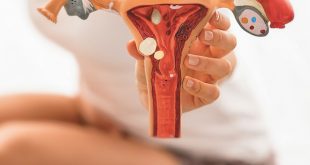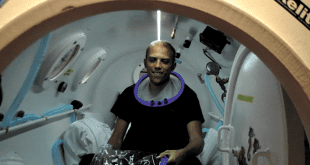 If you are experiencing hearing loss, it’s important to see an audiologist. Audiologists are trained to get you the best outcome and resolution for your specific condition. If you’ve noticed that it’s difficult to hear conversations in a noisy atmosphere, or you feel the need to adjust your television volume much higher than before, it’s vital for you to have your hearing checked. Getting the correct diagnosis is imperative when choosing a hearing device. Over-the-counter devices are merely amplification equipment and are not specific and specialized systems like hearing aids.
If you are experiencing hearing loss, it’s important to see an audiologist. Audiologists are trained to get you the best outcome and resolution for your specific condition. If you’ve noticed that it’s difficult to hear conversations in a noisy atmosphere, or you feel the need to adjust your television volume much higher than before, it’s vital for you to have your hearing checked. Getting the correct diagnosis is imperative when choosing a hearing device. Over-the-counter devices are merely amplification equipment and are not specific and specialized systems like hearing aids.
What matters most about the hearing aid is the technology. When it comes to the technology feature of hearing aids, an audiologist will guide you as to which option is best suited for your personal needs. There should never be a “one-size-fits-all” approach.
Conductive Hearing Loss
Conductive hearing loss occurs when there is a problem with the way sound is conducted to the inner ear and a structure called the cochlea. The problem may lie in the ear canal, eardrum (tympanic membrane), or the middle ear (ossicles and Eustachian tube). The inner ear remains unaffected in this type of hearing loss.
Symptoms
• Sounds are muffled
• Sounds are very low or quiet
Causes
• Outer or middle ear infections
• Complete earwax blockage
• Deterioration of the middle ear bones (ossicles)
• Otosclerosis – Fixation of the ossicles
• Perforated tympanic membrane (TM) – A hole in the eardrum
• Absence of the outer ear or middle ear structures
Conductive hearing loss may be temporary or permanent, depending on the source of the problem. Medical management can correct some cases of conductive hearing loss, while amplification may be a recommended treatment option in long-standing or permanent cases.
Sensorineural Hearing Loss
Sensorineural (sen-sor-ee-nuhral) hearing loss occurs when there is a problem with the sensory receptors of the hearing system, specifically in the cochlea of the inner ear. The majority of sensorineural hearing loss occurs as a result of an abnormality or damage to the hair cells in the cochlea. This abnormality prevents sound from being transmitted to the brain normally, which results in a hearing loss.
Symptoms
• Muffled speech
• Ringing in the ears (tinnitus)
• Difficulty hearing in background noise
• That others do not speak clearly
Causes
• Congenital – These hair cells have been abnormal since birth, which is considered a congenital condition.
• Damage to hair cells – A deficit in hearing also occurs when the cells are damaged as a result of genetics, infection, drugs, trauma, or over-exposure to noise (late-onset or acquired).
• Presbycusis – Hair cells are damaged as a result of the aging process, which causes a kind of hearing loss known as presbycusis (pres-be-cue-sis).
Sensorineural hearing losses are generally permanent and may stay stable or worsen over time. Routine hearing tests are needed to monitor the hearing loss. Amplification is the most common treatment, which includes hearing aids or cochlear implants in the most severe cases.
Mixed Hearing Loss
Mixed hearing loss occurs when a person has an existing sensorineural hearing loss in combination with a conductive hearing loss. This type of hearing deficit is considered a mix of sensorineural and conductive hearing losses, which means there is a problem in the inner ear as well as in the outer and/or middle ear.
The conductive hearing loss may be temporary or permanent, depending on the source of the problem. Mixed hearing loss can sometimes be treated with medical management, and hearing aids are a common treatment recommendation.
Neural Hearing Loss
Neural hearing loss occurs when the auditory nerve that carries impulses from the cochlea to the brain is missing or abnormal. This form of hearing deficit is difficult to diagnose, as the exact location of neural hearing loss is not always evident to hearing specialists.
To treat neural hearing loss, amplification may be recommended in some cases, depending on the severity of the damage to the hearing nerve. Individuals with neural hearing loss often have difficulty understanding speech, even when it is loud enough, especially in background noise.
Causes
• Genetics
• Acoustic tumors
• In-utero exposure to certain infections
• Severe jaundice in infancy
• Low birth weight associated with premature birth
Hearing Aids
A wide range of technology and a host of features are available in each hearing aid style. The cost of hearing aids generally depends on the technology and the number of features the instrument has and not necessarily on the style selected. Today’s digital hearing aids are typically offered in various technology levels, such as basic, entry, advanced or premium level.
When selecting a style, the following is considered:
• The degree of the hearing loss (power requirements)
• Manual dexterity and visual abilities
• Patient budget
• Cosmetics
• Skin sensitivities
• Anatomical/medical considerations
• Lifestyle and listening needs
Styles of hearing aids
Hearing aids are available in many different sizes and styles thanks to advancements in digital technology and miniaturization of the internal components. Many of today’s hearing aids are considered sleek, compact, and innovative – offering solutions to a wide range of hearing aid wearers.
To schedule your appointment, please call (727) 820-7708.
Joseph M. Padeni – Au. D., CCC-A
Joseph M. Padeni, AuD, CCC-A is part of BayCare Medical Group and provides services in the St. Petersburg area within the practice of Dr. John S. Morrow, otolaryngolgist. Dr. Padeni provides complete audiological and rehabilitation services for the hearing impaired. He has a Doctor of Audiology Degree from Arizona School of Health Sciences, a master’s degree in Audiology, Townson University, and a bachelor’s degree in communication disorders, Worcester State College. He is medically licensed and experienced in the diagnoses and treatment of hearing impairment and related auditory disorders in both the geriatric and pediatric population.
If you or a loved one is experiencing hearing loss, call today for a better tomorrow.
Bay Care Media Group
St. Anthony’s Professional Office Building
1201 5th Avenue North, Suite 304, St. Petersburg, FL 33705
Phone: (727) 820-7708 | Fax: (727) 820-7768
 Central Florida Health and Wellness Magazine Health and Wellness Articles of the Villages
Central Florida Health and Wellness Magazine Health and Wellness Articles of the Villages


